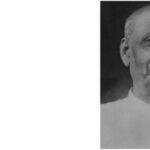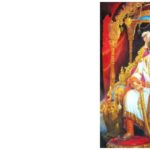In our series of essays on the great men and women of India, we present a Swami Vivekananda essay in English of 1000 words. Our earlier essays include essays on Mahatma Gandhi, Sardar Vallabhbhai Patel, Chhatrapati Shivaji Maharaj, Dr S.Radhakrishna, and many others. The life of Swami Vivekananda has always been an inspiration for the youth, and we capture the essence of his life and teachings in this Swami Vivekananda essay in English.
Essay on Swami Vivekananda in English

This post is essentially for those interested in essay writing on Swami Vivekananda, however, it will also be useful for those preparing a speech on Swami Vivekananda, or those who simply want to know more about Swami Vivekananda. Here you shall find a long essay on Swami Vivekananda, a short essay on Swami Vivekananda in English, a paragraph on Swami Vivekananda in English, and a few lines about Swami Vivekananda. Referring to these you can write an essay on Swami Vivekananda in your own words.
Here is a Swami Vivekananda essay in English of 1000 words for students, it also has a short essay on Vivekananda in English.
Swami Vivekananda Essay In English of 1000 Words | Essay On Swami Vivekananda For Students

This is a long essay on Swami Vivekananda in about 1000 words. Students can use this Swami Vivekananda essay in English of 1000 words.
Introduction
Swami Vivekananda was a famous Indian monk, philosopher, and writer. He introduced the concepts of Hindu religion and Vedanta to the western world. He was a direct disciple of Ramakrishna Paramhansa and founded the Ramkrishna Math as well as the Ramkrishna Mission.
Birth And Childhood
Swami Vivekananda was born as Narendranath Datta on the 12th of January, 1863, in Kolkata (Calcutta). He was born to Vishwanath Datta, a lawyer, and Bhubaneshwari Devi who was a housewife with a religious bent of mind. As a child, Vivekananda was affectionately called Narendra or Naren. Right from his childhood, he was inclined towards spirituality and religion.
Naren used to meditate before images of Gods and Goddesses in his home. Wandering monks and saints always held a strange fascination for him. His father’s logical and practical thinking combined with his mother’s religious devotion had a strong impact on him and shaped his future thinking and philosophy.
Education
The young Naren who was destined to become Swami Vivekananda did his early schooling at the Ishwarchandra Vidyasagar Metropolitan Institution in Calcutta. Later on he joined Presidency College, Calcutta, topping the entrance examination. However owing to illness, he had to drop out after a year. He later enrolled in the General Assemblies Institution, which is now known as Scottish Church College, from where he graduated with a BA, from the University of Calcutta.
Swami Vivekananda was a voracious reader who also had a photographic memory. His reading was wide and deep and included the Upanishads, the Vedas, the Puranas, the Bhagavad Gita, and other Hindu epics and scriptures. At the same time, he also studied Western philosophy and logic.
It was during his college studies that the young Vivekananda heard about Ramakrishna Paramhansa. His English Professor named William Hastie was teaching a poem by William Wordsworth, titled, ‘The Excursion,” and was explaining the meaning of the word, “trance.” He advised his student, that to know more about the meaning of the word, “trance,” they should visit Ramakrishna in Dakshineshwar. This prompted Vivekananda and a few of his fellow students to visit Dakshineshwar.
Swami Vivekananda And Ramakrishna Paramhansa

Vivekananda was drawn by the magnetic personality of Ramakrishna and his simple words. After brief meetings, he became a regular at Dakshineshwar, drawn by the love of the simple saint. Vivekananda had always asked any monk or wandering ascetic that he met, whether they had seen God, and was never satisfied by the answers he got. He posed the same question to Ramakrishna, to which the answer was that he had indeed seen God. The confident and simple answer satisfied Vivekananda, and he had found his spiritual master.
Vivekananda had all his questions and doubts about God answered by Ramakrishna. It was around this time, that he lost his father and his family was on the streets, deep in debt. Vivekananda, in utter desperation, asked his Guru, Ramakrishna to pray on his behalf to Goddess Kali. However, Ramakrishna advised him to pray directly to Ma Kali for the well-being of his family, which Vivekananda did.
This was a turning point and the spiritual awakening of the man who would soon come to be known as Swami Vivekananda. He was so overcome during his meditation on Ma Kali, that he forgot to ask for money or wealth, but instead prayed for, “Vivek,”(conscience), and, “Vairagya,”(Reclusion).
Ramakrishna died in the year 1886, and soon after Vivekananda and some of his fellow disciples started living and meditating in an old building in Baranagar, Calcutta, calling it the Ramakrishna Math. Thus was born the monastic order of Ramakrishna Math. In 1887, Naren formally became Vivekananda as he renounced all worldly pleasures and took the vows of monkhood with a few other brother disciples of Ramakrishna.
Travel Across India

Vivekananda travelled extensively across the length and breadth of India. He travelled by foot, and by train, meeting Kings, intellectuals, farmers, religious leaders, and common men. From Uttarakhand to Ahmedabad in Gujarat, to Kanyakumari, Vivekananda travelled to feel the pulse of his beloved country.
When Swami Vivekananda reached Kanyakumari in the year 1892, he prayed at the famous Kanyakumari temple and then swam to a rock in the middle of the ocean, and sat on it meditating for 3 days and 3 nights. It was here on that very rock, which is today known as Vivekananda Rock Memorial, that he saw clearly what he needed to do. He realized that action and service were important to serve the country and not mere renunciation.
It was on the rock in the middle of the ocean, that the seeds of participating in the Parliament of World Religions were sown in Vivekananda’s mind.
Historic Chicago Address
Swami Vivekananda represented India at the World Parliament of Religions in Chicago in 1893. It was on the 11th of September, 1893, that Swami Vivekananda stood up to give his historic speech. “Brothers and Sisters of America,” began the Swami to thunderous applause. He went on to explain with characteristic eloquence the finer points of Vedanta and the philosophy of Hinduism. By the time, he ended his speech to a standing ovation, he had put Hinduism on the global map of world religions.
The Passing Away
Swami Vivekananda had once predicted that he would not live to see the age of 40, and true to his prediction he passed away on the 4th of July, 1902, at the age of 39. On that fateful day, he completed his daily routine which included teaching his disciples, retired to his room in the evening, and died while meditating at around 9.00 PM. It is believed that he attained Mahasamadhi.
Swami Vivekananda left behind a legacy that inspires his countrymen even today. His literary works include commentaries on the Vedas, Upanishads, Bhagavad Gita, and more. In a short span of life, he left a deep impact on Indian spirituality and thought, much like Adi Shankaracharya had done hundreds of years before him.
Short Essay On Swami Vivekananda In English | Swami Vivekananda Essay In English 150 Words | Swami Vivekananda Essay In English 100 Words

If you need a short essay on Swami Vivekananda, then here are some points that will be useful to you to write the essay in your own words.
- Swami Vivekananda was a famous monk, saint, and philosopher of India
- Swami Vivekananda was born in Calcutta in the year 1863
- The original name of Swami Vivekananda was Narendranath Datta and he was affectionately called Narendra or Naren
- Vivekananda’s father’s name was Vishwanath Datta and his mother was Bhubaneshwari Devi
- From early childhood, Vivekananda showed a keen interest in spirituality and religion
- Vivekananda completed his BA from Calcutta University
- Vivekananda came into contact with Ramakrishna Paramhansa and that changed his life
- Vivekananda began his spiritual pursuit under the guidance of Ramakrishna Paramahansa
- After the death of Ramakrishna Vivekananda established the Ramakrishna Math and himself became a monk
- Vivekananda travelled across the country meeting people from all walks of life
- In the year 1893 Swami Vivekananda delivered his historic address in Chicago at the Parliament of World Religions
- Swami Vivekananda left the mortal world at the young age of 39 on the 4th of July, 1902, at Belur Math, Kolkata
The above essay will help students looking for a Swami Vivekananda paragraph 100 words, a Swami Vivekananda paragraph 150 words, a Swami Vivekananda essay in English of 1000 words, a Swami Vivekananda essay in English 250 words, a Swami Vivekananda essay in English 300 words and Essay on Swami Vivekananda in English 300 words.
We hope you have found our Swami Vivekananda essay in English of 1000 Words informative and helped you in writing the essay in your own words. Subscribe to our blog and follow us on Instagram and Twitter, for more informative content.

Thanks for visiting our site nirvandiaries.com and taking the time to read this post.
If you wish to collaborate or work with us then reach us at [email protected]
We’d love it if you’d comment by sharing your thoughts on this post and share this post on social media and with your friends.
Follow our journey on our social media channels:
Facebook Twitter Instagram Pinterest






